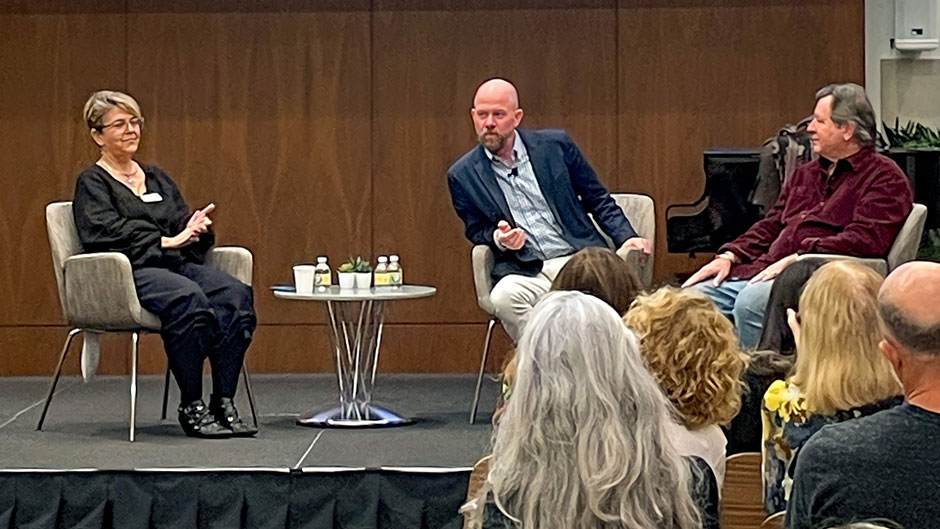The inaugural presentation of the Finlay B. Matheson Lecture Series kicked off Thursday evening at the Kislak Center in the Otto G. Richter Library, with a focus on food and the environment.
The series was created to honor the achievements of Matheson, a local environmentalist, activist, and protector of marine habitats.
“Tonight, we are highlighting two aspects of our collection: culinary history and the strong environmental focus,” said Cristina Favretto, head of special collections and librarian professor, in opening the discussion. “We have the perfect people to take you on a journey.”
New York Times food editor Sam Sifton and chef Normal Van Aken were the featured guests, and they shared their ideas and experiences about South Florida’s culinary bounty and the environmental concerns inherent in how we gather and prepare our food.
Sifton, the founding editor of NYT Cooking, the newspaper’s subscription service cookbook and cooking guide, underlined the importance of sustainable fishery and the process in which it is harvested for commercial use.
“If you’re complaining about the cost of seafood, go fishing,” said Sifton. “Try to get the fish yourself. It’s a brutally difficult task and a dangerous one for the fishermen. I don’t think bluefin tuna should be sold but since it is, it should be sold at a premium.”
Creator of the term “fusion” in the cooking world, Van Aken, who began his career in Key West during the 1980s, shared how much the food industry has changed for professionals and home cooks alike. But he pointed out that authenticity still reigns supreme as immigration continues to blur the lines of American food.
“All good food is fusion food if done correctly,” said Van Aken. “This is the sort of thing that I believe makes it impossible to be bored with food,” he added, pointing out that the mixture of cultures creates a great blend of cuisines.
Sifton and Van Aken both agree that the access to better food, like farm to table ingredients, has changed for the better over the past 50 years.
The lecture series, hosted by Special Collections at the University of Miami Libraries, uses materials—in this case, some traditional family cookbooks were among the items—that focus on South Florida to launch points for lively conversations.

